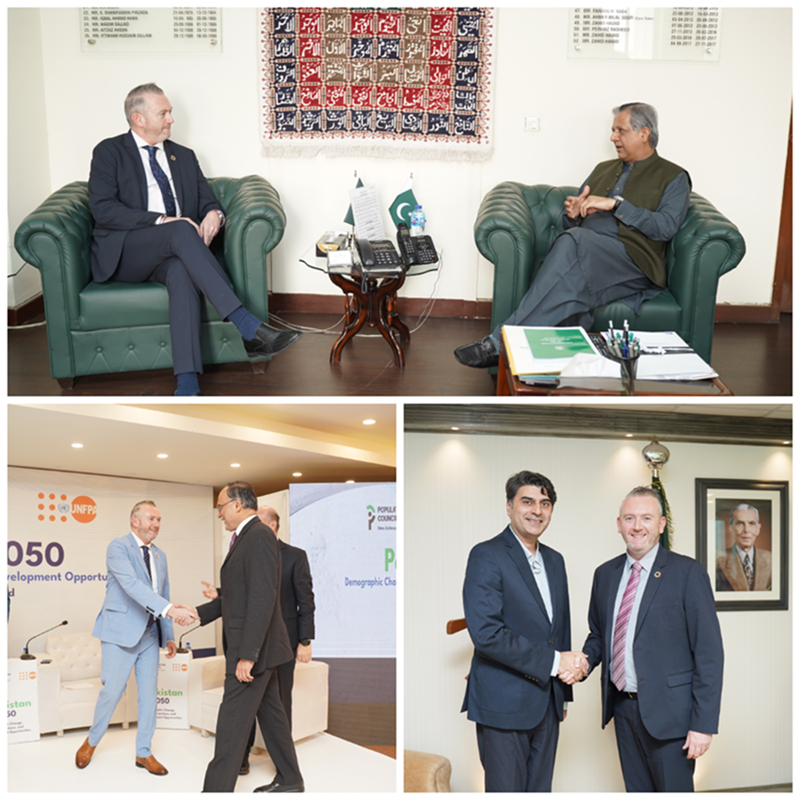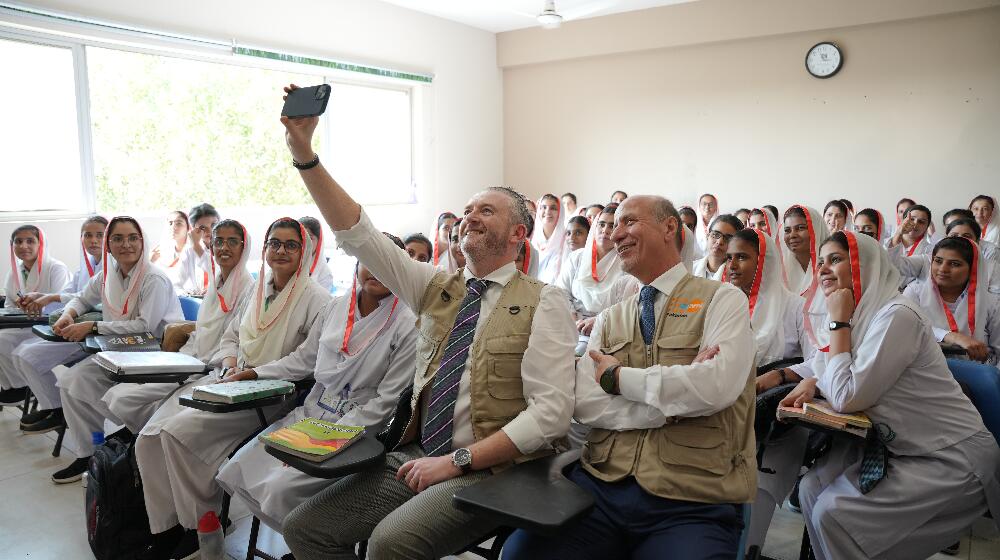UNFPA Asia-Pacific Regional Director, Mr. Pio Smith, recently visited Pakistan, the world's fifth most populous country, where two-thirds of the population are under 30. His visit underscored the critical work being done by UNFPA in collaboration with the National and Sub-national Governments, communities, and youth to ensure every individual can live with dignity, access health services, and exercise their rights.
During his visit, Pio Smith highlighted the transformative potential of Pakistan’s young population and reiterated UNFPA’s commitment to empowering women and girls, who remain central to its mission.
At Karachi’s Kohi Goth Hospital, the country’s only primary healthcare facility dedicated to treating obstetric fistula, he witnessed firsthand the remarkable work of healthcare professionals. The hospital plays a vital role in addressing fistula, a condition affecting marginalized pregnant women during prolonged labor.
I met young girls and midwifery students committed to improving the health, dignity, and rights of women and girls. Women and girls deserve more – more healthcare, protection, and opportunities. They are the hidden half of Pakistan’s economy and can be a powerful driver of progress,” he stated.
UNFPA’s support extends beyond healthcare, addressing gender-based violence (GBV) through psychosocial support, legal assistance, safe accommodation, and referral mechanisms. During his visit to the Ministry of Human Rights’ 1099 helpline, Mr. Pio commended the team for providing remote access to life-saving services for women and girls facing GBV or forced marriage.
The premiere of Salma – The Silent Scream, a short film produced by UNFPA Pakistan, was a significant moment during Pio Smith’s visit. The film sheds light on child marriage and its devastating impact on young girls.
Child marriage isn’t just a violation of human rights; it’s a barrier to progress. Millions of girls like Salma are married before the age of 18, shattering their dreams and limiting their futures,” he remarked.
Through Salma, UNFPA aims to amplify awareness and inspire action to end child marriage and adolescent pregnancy. The Regional Director UNFPA for Asia & Pacific called the film a story of courage and resilience, emphasizing the need for collective efforts to protect every girl’s right to a healthy, empowered life.
Meetings with government officials, including Planning Minister Prof. Ahsan Iqbal, Minster for Law, Justice & Human Rights Mr. Azam Nazeer Tarar, and Dr. Malik Mukhtar Ahmad Bharath, Coordinator to the Prime Minister on Health, reinforced the longstanding partnership between UNFPA and Pakistan. This collaboration, which dates back over 50 years, has focused on addressing maternal health, family planning, gender equality, and GBV.

I am inspired by the government’s dedication to achieving shared objectives. Together, we are building a future where everyone can make informed decisions about their lives and futures,” Pio Smith
The launch of the Pakistan 2050 report, co-produced by UNFPA Pakistan and the Pakistan Population Council, further demonstrated the organization’s commitment to supporting the country in linking population growth, economic development, and climate resilience.
At Lok Mela, Pakistan’s annual folk festival, Pio Smith experienced the vibrancy of Pakistani traditions and arts. UNFPA’s campaign #KahaniBadlenGe (We Will Change the Narrative) was showcased at the event, amplifying voices to end GBV through youth and artist engagement.
Meeting with youth at a Baithak (community sitting), the Regional Director expressed optimism about the passion and innovation of Pakistan’s young leaders.
Youth represent more than 60% of the population. Their energy and ideas promise a brighter future for Pakistan. Pio Smith
From advocating for women’s health and empowerment to engaging communities and policymakers, Mr. Pio’s visit highlighted the vital work being done to transform lives and build a better future for Pakistan.
Every birth, every life, and every right must be respected. Together, we can ensure a healthier, more equitable future for all,” Pio Smith Regional Director UNFPA for Asia & Pacific.


